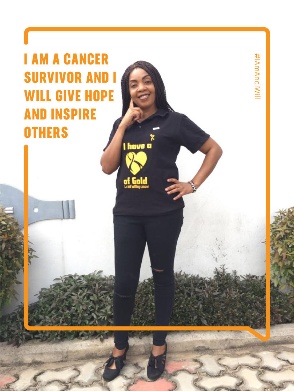- (000) 123 458 789
- office@worldpatientsalliance.org

PATIENT VOICES
Survivor Stories
Hope Beyond the Diagnosis: A Journey of Courage, Loss, and Legacy
 Catherine Wambugu
Catherine Wambugu
Leukemia, Cancer
Kenya
In 2012, my life took a turn I never saw coming. I was 22, full of dreams, laughter, and plans for the future. Then came the diagnosis: acute leukemia. The words hit like thunder. I was told I had only six months to live. No one is ever prepared to hear those words—not at 22, not ever. I walked out of the hospital in a daze, my body present but my spirit crushed. I stopped planning, stopped dreaming, and began preparing to die.
The treatment journey was long, gruelling, and uncertain. I underwent multiple rounds of chemotherapy, each one leaving me weaker, sicker, and more exhausted than the last. My hair fell out, my weight dropped drastically, and the pain—both physical and emotional—was relentless. Then came radiation therapy, which added to the trauma, and eventually, a bone marrow transplant, which brought both hope and a terrifying risk of complications.
But the worst part wasn’t the physical suffering—it was the uncertainty. There was no guarantee that any of it would work. My family and I faced an overwhelming financial burden. We sold what we could, borrowed where we could, and prayed the next scan would bring good news. The cost of care drained everything. In a healthcare system where access to advanced treatment is a privilege, not a right, I often wondered: What happens to the ones who don’t have the means to fight?
After everything—months and even years in hospital, remissions and recurrences, endless tests, infections, isolation, and near-death moments—the doctors told us that none of the standard treatments had worked as hoped. My options had run out. And then, like a flicker in the dark, came a final chance: a clinical trial—CAR T-cell therapy—offered outside the country (wasn’t available in Kenya). It was experimental, unproven for someone like me, and the very last alternative.
With the help of friends, family, and well-wishers, we raised funds and travelled for the unknown. Being in a foreign country, alone for most of the time, going through the most intense phase of my life, was a different kind of battle. But deep inside, I knew I wasn’t done yet. The therapy was brutal but promising. And slowly—miraculously—I began to recover. My body responded. I survived.
But survival is only the beginning.
Coming home, I looked fine on the outside, but inside, I was fractured. I battled survivor’s guilt, depression, anxiety, and post-treatment trauma. I had been through hell, and while I had come back, I wasn’t the same. Still, I was grateful—for life, for breath, for one more sunrise. I believed I had survived for a reason.
Just as I was beginning to reclaim pieces of my life, another cruel twist came. My beloved son—only 9 years old—was diagnosed with cancer. This time, it wasn’t me on the hospital bed—it was him. Watching him fight the very monster I had just escaped from broke me in ways words can’t express. I wanted to trade places with him. I knew the road he was about to walk, and I dreaded every step.
We fought together—me as his caregiver, his mother, his fellow warrior. We did everything: treatments, prayers, therapies, moments of laughter between chemo sessions, silent tears after difficult nights. He was my sunshine through the storm, a brave little soul with a heart too big for this world. But even with all our efforts, cancer took him at the age of 12.
Losing him was the most painful moment of my life. It nearly ended me.
But somehow, in that depth of sorrow, I found a calling. I couldn’t let his story, or mine, be about pain alone. There had to be more. And so, out of grief, I founded Hope & Courage International a living legacy to him, to every child, teen, and young adult fighting cancer with silent strength.
Through Hope & Courage, we provide psychosocial support, wellness activities, safe spaces, and companionship to those navigating the cancer journey. We bring joy into hospital wards. We listen to their stories. We hold hands with the fearful, laugh with the fighters, and honour the ones we’ve lost. We don’t just advocate for care—we show up with love, with presence, with understanding that can only come from lived experience.
This journey has transformed me. I have come to understand that healing is not just about medicine—it’s about community, dignity, hope, and the ability to smile again. I’ve also learned that resilience doesn’t mean not breaking—it means continuing to rise after you do.
There are still moments that hurt deeply. There always will be. But now, those moments fuel my mission. Every time a child giggles during art therapy, every time a teenager feels seen and heard, every time a parent finds comfort—they remind me that my story is still being written. And it is one of purpose.
Cancer tried to take my life. Then it tried to break my spirit. But today, I stand—not just as a survivor, but as a mother, a voice, and a force for change.

